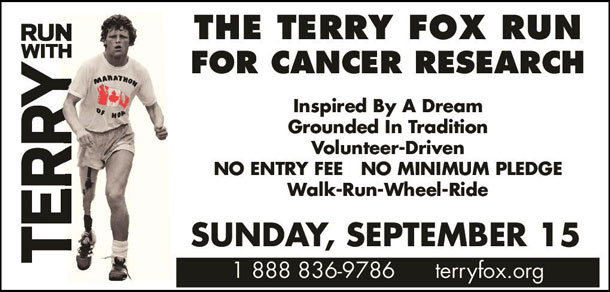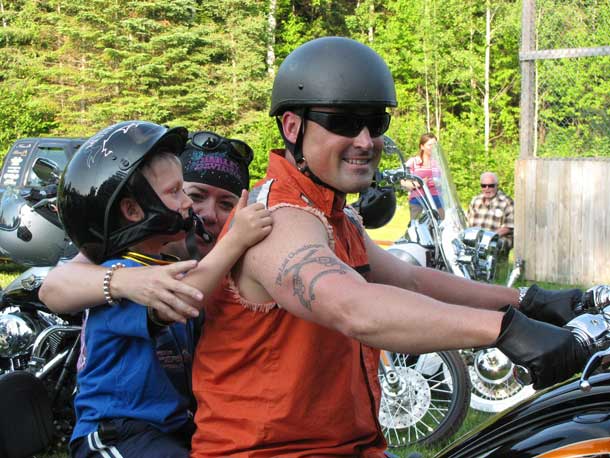 OTTAWA – LIVING – As I headed out the door in Ottawa the other morning making my way uptown to Boushey’s Fruit & Vegetable Market, at the intersection of Elgin and Waverley, one who was blind was waiting patiently for the lights to change. She touched the grey pavement with her white walking stick in one hand. Had a few college books in the other. It seemed this early autumn morning had already begun to fold the world in the mysteries of its embrace as a writer once said.
OTTAWA – LIVING – As I headed out the door in Ottawa the other morning making my way uptown to Boushey’s Fruit & Vegetable Market, at the intersection of Elgin and Waverley, one who was blind was waiting patiently for the lights to change. She touched the grey pavement with her white walking stick in one hand. Had a few college books in the other. It seemed this early autumn morning had already begun to fold the world in the mysteries of its embrace as a writer once said.
We were on opposite sides of the traffic we awaited. The lights changed. She began stepping deliberately in a beeline to Boushey’s bright interior lights behind its glass entrance. We were presently walking directly to the same spot. Although another early walker slipped in between us. Entered first.
The blind girl could now sense the gentle hydraulics of a door. She immediately tapped its baseline. Preferring, obviously, to open her own doorway. In no time she’d picked up clues needed as to where the door was. Within seconds she was inside tapping her way to the deli. Only last year travel writer Tim Cahill wrote, “We are living in an age in which we are blessed with information of all sorts of images of interest.”
My mother through a tumble down a staircase as an infant lost the sight in one eye. However, throughout her life she pursued a passionate appreciation for the tones in the water along our shorelines of Lake Superior. Or, merely pausing in her walks to admire the impressions of colourful flowers at Hillcrest Park.
So on a day on a walk to Quebec, to see their on the Life of Canada’s amazing marathoner Terry Fox, my morning meditation at our neighbourhood coffee shop had already been cast.
Curiously I carried James Joyce’s Ulysses in my book bag. Joyce includes a very touching vignette where Leopold Bloom also encounters a blind person on his morning stroll.
In 1922 Joyce wrote,”the blind stripling tapped at curb stones, drawing his cane back, feeling once again. Mr. Bloom walked behind the eyeless feet. Poor fellow. How on earth did he know the horses and van were there? Must have felt it. They sense things in their forehead perhaps. Kind of a sense of volume. Weight or size of it. Strange idea of Dublin he must have tapping his way around the stones. Of course the other senses are more. Sense of smell must be stronger. Smells on all sides. Each street different. Each person too. Then the spring. The summer: all by smells. Must have a kind of form in his mind’s eye. A voice. Temperatures. Is life a dream for them?
Well Joyce had many inventions in writing where his dream-speech and word-searches were what he termed his epiphany moments or carantoed (something like a sinkapace, sinkadance, in Shakespeare). The point being the exuberance Joyce once penned about a young blind man called Penrose helped capture a very precious, out of the blue, experience Ezra Pound might have called faces in a crowd on a perennially busy avenue in Ottawa.
Not only were reflections of my mother revised; it also brought back the events that precipitated the American sightless author Helen Keller’s book: Three Days To See. As it happened Helen Keller had been waiting on a friend at her apartment to have tea with.
Keller’s windows overlooked Central Park. Once their first cups of tea were poured, Keller inquired of her friend, “tell me…what did you see on your walk today arriving here?”
Her friend would likely not ever be told the gravity of her response. “Well,” she began, “I didn’t really see much worth talking about.” Keller was moved to mute-ness. Overwhelmed how a seeing person had not valued the gift of vision bestowed upon most. Especially those exceptional visual experiences looking through good eyes.
Not long after Keller organized batches of reflective time composing her book describing how she might cherish every moment. Every day given an opportunity to see. She decided on three days to see. Informing her readers how she would channel her energies and visual auditions.
Hers is such a vibrant tale appreciating a tiny sense and glimpse of normal seeing. So very often overlooked by masses of people. Keller’s book truly merits a kind of sacrosanct quality in re-reading the pages of her homespun revelations. Understanding her visual dreaming frozen in time if only in the microscopic span of a week. All her viewpoints assimilated within the gusto and exuberantly fashionable images Manhattan might ever present.
Later on that day I had been overjoyed going through Minto Park, walking great lengths of
Elgin Street to the Rideau Plaza, then, across the bridge over the Ottawa River to Hull, Quebec. Enjoyed stepping into the former Museum of Civilization with its phenomenal focus on Canada’s First Nations totems, sculptures, prints and paintings.
As well the museum’s highlighted Exhibition displaying so much of what we in Thunder Bay have come to understand, through decades, regarding the brilliant aspects of Terry Fox’s athleticism. Such a legend to arise out of being plagued by the loss of a leg through cancer. A young man with such vitality, and an eternally bright vision, forged via his own drive to prove what seems impossible could be done Run his Canadian Marathon on one leg until he had nothing left to fuel his drama. I had been wanting to make this long odyssey on foot on this trip to our capital having met Terry twice in 1980. Once in Toronto. The other on that last day of his final attempt to cross Canada by foot. Where everything folded up sadly forever on that little valley of the MacKenzie River just east of Thunder Bay. Yet remarkable, in a thousand different ways, inside what Terry Fox’s Dream had begun to put a spotlight on our nation’s citizenry who marvelled at his dedication.
In Terry’s own words, “somewhere the hurting must stop.” It became his clarion call while measuring one footfall after another laboured step to come. With the wildest backers feeling IF only Terry might garner just a few hundred thousand dollars. Instead. Terry Fox and his Foundation collected $22 million in his quest of pursuing Canadian Cancer Research. A phenomenal milestone evolving from the workloads of daily running that consumed thousands of miles having dipped a toe in the Atlantic in Newfoundland where he began it all.
And even though we occasionally think we have experienced everything about Terry’s tour, there was a very striking three-dimensional case in Quebec’s Exhibition. What caught my eye. Stopped my walkabout. Was coming to a point where an artificial leg, complete with its harnessing and trappings, stood on a little platform not far from one of the most benign photos taken of Terry at the time. It was Terry being honoured by the Toronto Maple Leafs hockey star Darryl Sittler.
Though the imagery of one of the most iconic pieces of Terry’s equipment that both enabled, and supported, every step of his journey was not only illuminating to me. It completed and fulfilled the unbelievable strength a young man passionately nurtured, developed while following the beat of his own drum. All the while surmounting incredible obstacles on the apron of highways he succeeded in navigating through many provinces.
Thinking of things, as I made my way walking back to Ottawa that night, beginning with the momentary moments when a blind girl set her white walking cane next to the cash register at Boushey’s. Because that put a focus on her blind instrument, or a white shillelagh, that not only fortified her daily lifeline; it was a crucial implement that her independence leaned on.
In the same way Fox’s marathon was pivoting on, totally supported, by the adaption of a craftsman’s diligence in creating the mechanics of his artificial leg. The central cog inside one man’s Marathon of HOPE as his T-shirts proclaimed. A solution-solver, if one might write about it that way that catered to his success at every turn. And actually as it was seen, and heard, throughout that summer of 1980. Because it was the ultimate cacophony of Terry Fox’s brilliant hop…and…a step. The transmission of motion he engineered, developed, and, ultimately devoted to everyone everywhere in our land and beyond. With an unbounded vision Terry Fox, and thousands of others, struggle with in their battles with cancer.
Ronn Hartviksen






